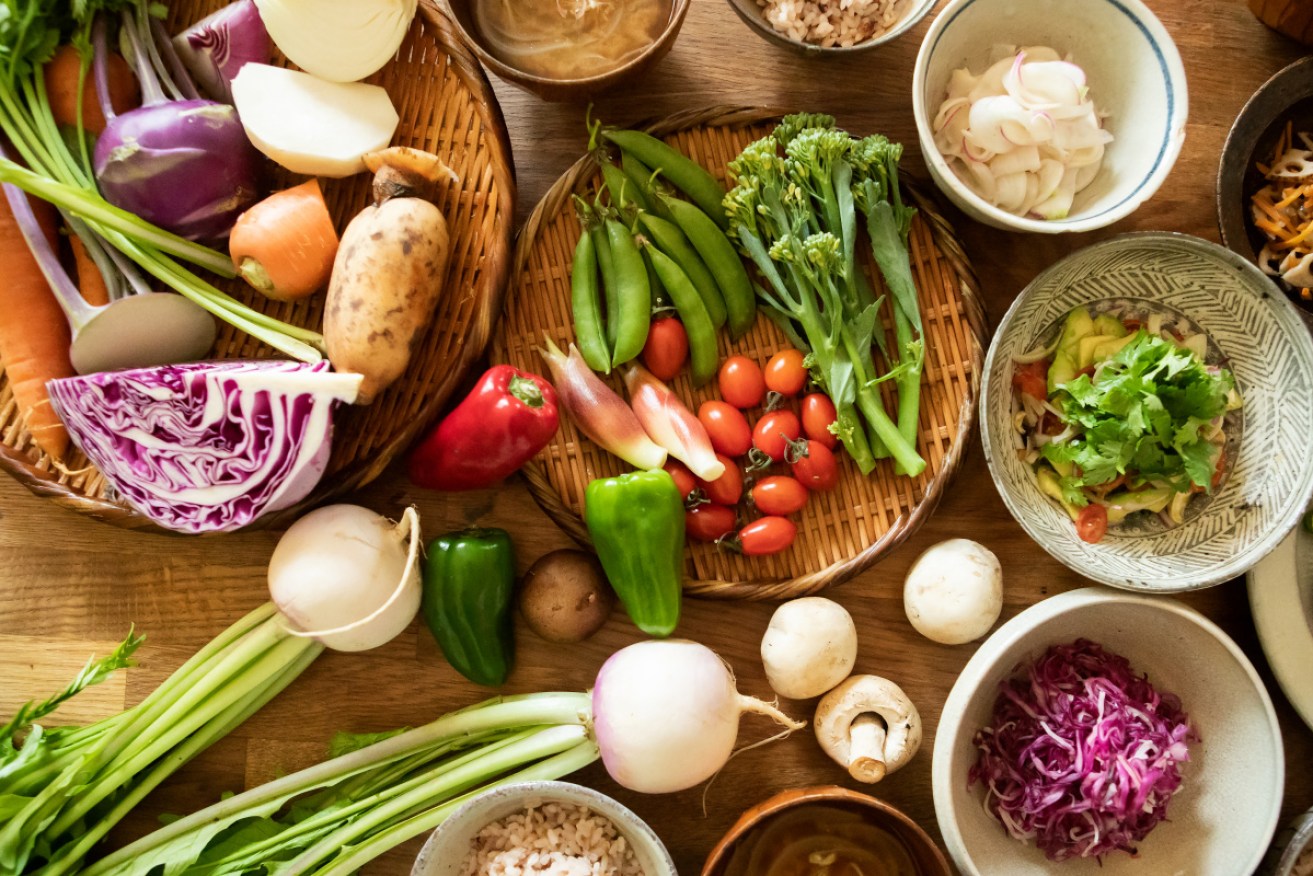Eating fruit and veg can help prevent heart attacks, but not all plant-based foods are healthy


Spending in most categories impacted by COVID-19 has returned to pre-pandemic levels, the ABS says. Photo: Getty
Next time you walk past a pile of wilted spinach at the supermarket, ask yourself why it’s wilting in the first place.
Poor self-esteem? Highly likely. No purpose in life? For sure.
Vegetables, fruit and other plant foods are good for us – especially for our hearts. There’s plenty of science that says so.
Two new long-term studies – here and here – found that both young adults and postmenopausal women had fewer heart attacks when their diet was richer in plant foods such as leafy greens, nuts, legumes and whole grains.
Another study, published in February, found that postmenopausal women who ate more plant protein (nuts, chickpeas instead of steak) were 21 per cent less likely to suffer a dementia-related death.
But according to a 2019 report from the Australian Institute of Health and Welfare: “Australians of all ages generally have a poor diet.”
We don’t eat enough of the five food groups (vegetables, fruit, grains, lean meats, and dairy products) and fill up on crap – also known as ‘discretionary foods’ that are high in salt, fat and sugar.
The report says: “Inadequate fruit and vegetable consumption in particular is a risk factor for cardiovascular disease, type 2 diabetes, chronic kidney disease, and … obesity.”
Eight per cent of women are getting “sufficient intake” of fruit and vegetables, compared to three per cent of men.
Is it any wonder that so much broccoli is hanging its head in shame?
The ‘flexitarian’ diet
You could be fooled into believing that Australia has heeded the message, and is undergoing a dietary makeover.
Market-based surveys claim that Australia is leading the way in reducing their intake of animal-based foods (meat and dairy) and eating more plant-based foods.
More and more of us are said to be adopting a more ‘flexitarian’ diet.
Flexitarians can’t go all the way into vegetarianism, but at least they’re making an effort. And that’s the basic ethos.
In April, Hong Kong-based health and wellness magazine Green Queen, reported: “Australian shoppers represent the most flexitarian country, with more than 45 per cent polled stating that they are practising animal product restriction, closely followed by the UK and US markets.”
The author cited a Food Frontier report, which detailed the “exponential growth” of the Australian plant-based food industry over the course of 2020.
The plant-based foods being talked about here include meat alternatives, such as vegan mince, burgers and sausages. They are certainly in vogue.
The pitfalls of ‘plant-based meat’
In 2019, VicHealth, in tandem with the Heart Foundation, reported that more than 2.5 million Australians were eating meat-free and “the choice of alternatives such as meat-free bacon, burgers and sausages has almost tripled in supermarkets in less than a decade”.
These products might be plant-based, gluten-free, organic and vegan, “but many meat-free alternative products are highly processed and packed with salt, making them more stealthy than healthy,” the report said.
Some products are “hiding up to half a day’s worth of salt in one serve”.
There are lower salt options, and any reduction in eating red meat is a healthy move – but meat alternatives alone aren’t going to deliver the benefits of a true plant-based diet.
That plant-based eating significantly lowers the risk of cardiovascular disease is old news.
Perhaps the strongest message from these new studies is that you can benefit from these effects throughout your lifetimes.
US researchers followed 5000 young adults for 32 years.
Those who adopted a healthier plant-centred diet when they were in their twenties had their risk of developing cardiovascular disease cut in half by middle age.
This doesn’t mean giving up chicken and fish and dairy, even red meat in small doses.
The reality is, there are plenty more foods out there that are good for you.
Make an effort and your diet will be more varied, with more flavours and textures, as well as healthier.








